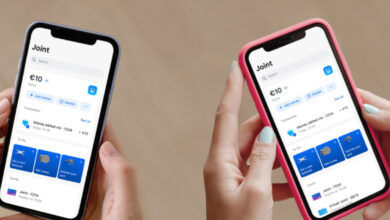The Do It For Me sector—commonly abbreviated as DIFM—has exploded in popularity in recent years, redefining how consumers and businesses approach tasks, services, and solutions. From home improvement and digital marketing to meal delivery and car repairs, this growing segment of the economy caters to individuals and organizations who prefer outsourcing tasks to experts instead of doing them independently.
The phrase “do it for me” symbolizes a shift in consumer expectations, where convenience, expertise, and time-saving take precedence over DIY (Do It Yourself) solutions. As technology continues to advance and lifestyles become busier, the demand for DIFM services has surged across industries.
This article dives deep into the Do It For Me sector, explaining what it is, why it matters, who benefits, and how it’s transforming industries. Whether you’re a business owner, investor, or consumer, understanding this trend is key to staying relevant in the modern economy.
What is the Do It For Me (DIFM) Sector?
Definition and Scope
The Do It For Me sector refers to services where professionals perform tasks on behalf of clients who prefer not to handle them themselves. Unlike DIY solutions, where users purchase tools or instructions, DIFM services are fully outsourced, often offering white-glove, end-to-end assistance.
This sector covers a wide range of categories including:
- Home services (plumbing, electrical, cleaning)
- Digital marketing (SEO, ad management, web design)
- E-commerce (product listings, fulfillment, store management)
- Automotive (repairs, detailing, maintenance)
- Finance (tax prep, bookkeeping, consulting)
- Wellness (meal prep, fitness coaching)
- Technology (IT support, software implementation)
Key Characteristics
- Expert-driven execution
- Minimal client involvement
- Premium pricing for convenience
- Recurring service potential
- Customer-centric experience
Why the Do It For Me Sector is Booming
1. Time Constraints in Modern Life
As consumers face increasingly hectic schedules, many simply don’t have the time to manage home projects, online businesses, or tech setups. The DIFM model fills that gap by saving time and reducing complexity.
2. Demand for Expertise
Many tasks—like digital marketing or tax planning—require specialized knowledge. Consumers and small business owners recognize that hiring an expert leads to better outcomes than attempting it themselves.
3. Rise of the Experience Economy
People are spending more on experiences and outcomes than on products. DIFM services provide tangible results without the effort, aligning with this trend.
4. Technological Enablement
Apps, platforms, and AI have made it easier for service providers to connect with consumers, quote accurately, and deliver services at scale. Platforms like Thumbtack, Fiverr, and TaskRabbit are prime examples.
Key Industries Driving DIFM Growth
Home Improvement and Maintenance
Consumers are increasingly hiring professionals for painting, remodeling, landscaping, and cleaning. DIFM has become the default for complex or messy home projects.
Examples of services:
- Appliance installation
- Smart home setup
- Pest control
Digital Marketing and E-Commerce
Small businesses and solopreneurs often outsource SEO, content creation, ads, and website development to digital experts.
Popular DIFM offerings:
- Social media management
- Email marketing campaigns
- Product photography and Amazon listing optimization
Automotive Services
Mobile mechanics, car detailing apps, and subscription maintenance services are changing how consumers handle vehicle care—often from the comfort of home.
Health and Wellness
From meal prep kits to virtual personal training, consumers are turning to DIFM models to improve their well-being without having to plan or research extensively.
DIFM vs. DIY: What’s the Difference?
| Feature | DIY (Do It Yourself) | DIFM (Do It For Me) |
|---|---|---|
| Who Does the Work | The customer | A hired professional |
| Time Required | High | Low |
| Skill Needed | Must learn or research | Expertise handled by provider |
| Cost | Usually lower upfront | Higher due to service fee |
| Convenience | Lower | Very high |
While DIY appeals to hobbyists and cost-conscious users, DIFM wins when speed, quality, and convenience are top priorities.
Consumer Behavior: Why People Choose DIFM
1. Value of Time
People increasingly value time over money. DIFM is seen as a smart investment that frees up hours in the day.
2. Fear of Mistakes
Many tasks come with a high margin for error. From taxes to plumbing, one wrong move can be costly. DIFM minimizes risk.
3. Lifestyle Priorities
Health, family, and career take precedence over tedious chores or learning curves. Outsourcing enables focus on what matters most.
4. Immediate Gratification
Consumers want instant solutions. Waiting days or weeks to learn how to do something isn’t appealing in today’s on-demand culture.
Business Opportunities in the DIFM Sector
Emerging Niches
New DIFM opportunities are popping up daily, especially in the gig economy and remote service areas. Examples include:
- Podcast editing services
- Virtual interior design
- Online course development
- AI setup and customization
Subscription Models
Businesses are increasingly offering DIFM services on a monthly subscription basis—providing stable revenue and consistent service for clients.
Franchising Potential
DIFM brands, especially in cleaning, pet care, or home repair, are prime candidates for franchise expansion due to standardized procedures and high demand.
The Future of the Do It For Me Sector
Integration with AI and Automation
AI is augmenting DIFM services by speeding up delivery, improving personalization, and reducing costs. Examples include:
- AI-generated ad copy
- Chatbots for client onboarding
- Predictive analytics in marketing strategies
Voice and App-Based Bookings
The future of DIFM lies in ultra-convenient interfaces. Consumers will be able to schedule services with a simple voice command or one-tap booking.
Sustainability Focus
Eco-friendly DIFM options (e.g., green cleaning services or ethical sourcing consultants) will likely grow in popularity among conscious consumers.
Challenges Facing the DIFM Sector
Cost Sensitivity
While many are willing to pay for convenience, there’s still a significant segment of the market that is price-conscious.
Trust and Reliability
Not all providers offer consistent quality. Ensuring professionalism and accountability is essential for sustained growth.
Scalability Issues
Some services—like home repairs or personal coaching—require human labor and don’t scale as easily as digital products.
Summary: Why the Do It For Me Sector Matters
The Do It For Me sector is not just a convenience-driven trend—it’s a paradigm shift in how people approach time, tasks, and technology. As digital platforms, automation, and consumer expectations continue to evolve, DIFM services will become more ingrained in everyday life.
From busy parents and elderly homeowners to startups and solopreneurs, the appeal of having an expert “just do it for me” is undeniable—and only growing stronger.
Final Thoughts
The rise of the Do It For Me sector reflects a broader cultural shift toward efficiency, expertise, and outcome-based living. Whether you’re a service provider, tech innovator, or a consumer, understanding the DIFM mindset is critical to thriving in today’s experience economy.
Are you leveraging the power of DIFM in your life or business? Explore how outsourcing the right tasks can transform your productivity, results, and peace of mind.




